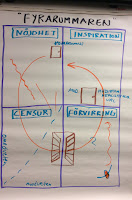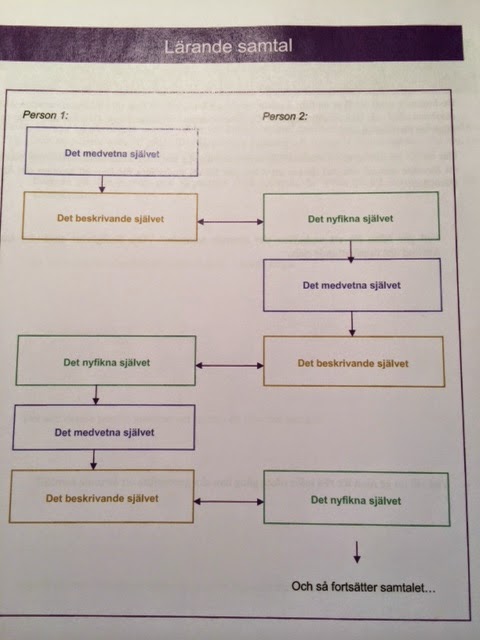Bringing life 2 organizational change
I got a recommendation for a leadership book last summer. It was "Finding Our Way - Leadership For an Uncertain Time" written by Margaret J. Wheatley. On my way home from my ski holiday in Idre I read a chapter called "Bringing Life to Organizational Change", cowritten by Myron Rogers. Damned good!
Exformative summary:
"If organizations behave like living systems, the following description of change should sound familiar:
Some part of the system notices something... It chooses to be disturbed by this. Chooses is the important word here. If it chooses to be disturbed, it takes in the information and circulates it rapidly through its networks. As the disturbance circulates, others grab it and amplify it. The information grows, changes, becomes distorted from the original, but all the time it is accumulating more meaning. Finally, the information becomes so important that the system can´t deal with it. Then and only then will the system begin to change. It is forced by the sheer meaningfulness of the information, to let go of present beliefs, structures, patterns, values... It truly must let go, plunging itself into a state of confusion and uncertainty that feels like chaos, a state that always feels terrible.
Having fallen apart, having let go of who it has been, the system is now and only now open to change. It will reorganize using new interpretations, new understandings of what´s real and what´s important. It becomes different because it understands the world differently. And, paradoxically, as is true with all living systems, it changed because it was the only way to preserve itself."
She continues with her "Four Core Principals of Change":
Finally, a Wheatley YouTube clip - "People support what they create":
Exformative summary:
"If organizations behave like living systems, the following description of change should sound familiar:
Some part of the system notices something... It chooses to be disturbed by this. Chooses is the important word here. If it chooses to be disturbed, it takes in the information and circulates it rapidly through its networks. As the disturbance circulates, others grab it and amplify it. The information grows, changes, becomes distorted from the original, but all the time it is accumulating more meaning. Finally, the information becomes so important that the system can´t deal with it. Then and only then will the system begin to change. It is forced by the sheer meaningfulness of the information, to let go of present beliefs, structures, patterns, values... It truly must let go, plunging itself into a state of confusion and uncertainty that feels like chaos, a state that always feels terrible.
Having fallen apart, having let go of who it has been, the system is now and only now open to change. It will reorganize using new interpretations, new understandings of what´s real and what´s important. It becomes different because it understands the world differently. And, paradoxically, as is true with all living systems, it changed because it was the only way to preserve itself."
She continues with her "Four Core Principals of Change":
- Participation Is Not a Choice - we have no choice but to invite people to rethink, redesign, restructure the organization. People only support what they create.
- Life always Reacts to Directives; It never Obeys Them - We have to honor the fact that people always need to include themselves in how a procedure gets done.
- We Do Not See "Reality"; We Each Create Our Own Interpretation of What´s Real - We see the world through who we are... "What you notice becomes your life".
- To Create Better Health in a Living System, Connect It to More of Itself - this principle implies that the critical task for a leader is to increase the number, variety and strength of connections within the system.
Finally, a Wheatley YouTube clip - "People support what they create":




Kommentarer
Skicka en kommentar